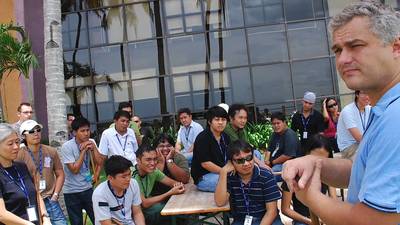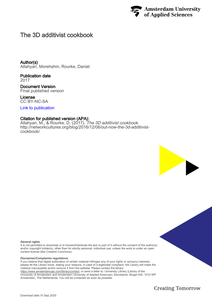The essays collected here are based on two decades of engagement with the residents of the slums of Govindpuri in India’s capital, Delhi. The book presents stories of many kinds, from speculative treatises, via the recollection of a thousand everyday conversations, to an account of the making of a radio documentary.Zig-zagging through the lanes of Govindpuri, Listening into Others explores the vibrant sounds emanating from slum culture. Redefining ethnography as listening in passing, Chandola excels at narrating the stories of the everyday. The ubiquity of smartphones, sonic selfies, wailing, the ethics of wearing jeans, the crossroad rituals of elections, the political agency of slum-dwellers, the war of the sexes through bodily gestures, and conflicts over ownership of both property and sound generated in the slums — these are among the many encounters Chandola opens up to the reader.Slums are anxious spaces in the materiality, experience, and imagination of a city. They are the by-products of the violent and exploitative mechanisms of urbanization. What becomes of the slum-dwellers, who universally, across centuries, cities and continents, befall similar fates of being discriminated, reckoned to be the scum of the earth, and a burden on society? By listening to identified others and amplifying their voices in their own vocabularies and grammar, Tripta Chandola’s praxis creates a methodological, political, and poetic rupture. Slums, she finds, are not anathema to the city’s past, present, or future. They are an integral component of urbanization and a foundational part of the city.With Listening into Others, Tripta Chandola poses the question: ‘Who owns the slum, and who determines which voices are heard? From where you are, listen with me.’
MULTIFILE
Exploration of the Video Essay format about the impact of political and cultural factors in the Philippines.
LINK

Ulus Baker (1960 – 2007) was a Turkish-Cypriot sociologist, philosopher, and public intellectual. He was born in Ankara, Turkey in 1960. He studied Sociology at Middle East Technical University in Ankara, where he taught as a lecturer until 2004. Baker wrote prolifically in influential Turkish journals and made some of the first Turkish translations of various works of Gilles Deleuze, Antonio Negri, and other contemporary political philosophers. His profuse and accessible work and the novelty of the issues he enthusiastically introduced to Turkish-speaking intellectual circles, earned him a widely spread positive reputation in early age. He died in 2007 in Istanbul.The text in this edition is edited from essays and notes Ulus Baker wrote between 1995 and 2002. In these essays, Baker criticizes the sociological research turning into an analysis of people’s opinions. He explores with an exciting clarity the notion of ‘opinion’ as a specific form of apprehension between knowledge and point of view, then looks into ‘social types’ as an analytical device deployed by early sociologists. He associates the form of ‘comprehension’ the ‘social types’ postulate with Spinoza’s notion of ‘affections’ (as a dynamic, non-linguistic form of the relation between entities). He finally discusses the possibilities of reintroducing this device for understanding our contemporary world through cinema and documentary filmmaking, by reinstating images in general as ‘affective thought processes’.Baker’s first extensive translation to English provides us with a much-needed intervention for re-imagining social thought and visual media, at a time when sociology tends to be reduced to an analysis of ‘big data’, and the pedagogical powers of the image are reduced to data visualization and infographics.
MULTIFILE
Deze publicatie beschrijft het eerste deel van het Subjectieve Cartografie-project. Dit is onderdeel van het onderzoeksproject Sense Ecology. Subjectieve cartografie wordt hierin als artistieke onderzoeks- en onderwijsmethode ontwikkeld en getest. Dit vindt plaats binnen het onderwijs op Academie Minerva.
DOCUMENT

Transcript of a lecture during the conference 'Is contemporary art history', Institute of Fine Arts, New York, 28th february 2014.
MULTIFILE
In Videoblogging Before YouTube, Trine Bjørkmann Berry offers a cultural history of online video, focusing on the critical moment when the internet moved from being a mostly textual medium to a truly multimedia one. Through a close analysis of the early videoblogging community and their creative practices, she argues that early in the new millennium a new cultural-technical media hybrid emerged. This coalesced around the short-form digital film whose aesthetic, technical form and content is a predecessor to, and anticipator of our current media ecology.
MULTIFILE

The 3D Additivist Cookbook, devised and edited by Morehshin Allahyari & Daniel Rourke, is a free compendium of imaginative, provocative works from over 100 world-leading artists, activists and theorists. The 3D Additivist Cookbook contains .obj and .stl files for the 3D printer, as well as critical and fictional texts, templates, recipes, (im)practical designs and methodologies for living in this most contradictory of times.
MULTIFILE

In: Frank Gadinger, Martina Kopf, Ayşem Mert, and Christopher Smith (eds.). Political Storytelling: From Fact to Fiction (Global Dialogues 12) This essay presents a summary of important perspectives concerning the distinction between what counts as truth or fiction. As a source of inspiration, it starts with two examples found in literature – the first a classical Spanish novel and the second a collection of stories written by the leader of a social movement in Mexico. These two examples of the conflictive relations between truth and fiction, authenticity and imagination serve as a source of inspiration for the rest of this article, which shows that this issue has been a subject of intense debate in philosophy and in the philosophy of science and still presents a challenge in the 21st century. The essay states that absolute, objective truth is a myth. It describes that what counts as ‘truth’ in a particular era, is, among other things, the result of power relations. It suggests productive ways to deal with this problem in modern society, through deliberative, emancipatory processes of reflexivity (Weick 1999), participatory research and dialogue, facilitating innovation and generation of new solutions.
LINK
Socially aware persuasive games that use immersive technologies often appeal to empathy, prompting users to feel and understand the struggles of another. However, the often sought-after standing in another's shoes' experience, in which users virtually inhabit another in distress, may complicate other-oriented empathy. Following a Research through Design approach, we designed for other-oriented empathy - focusing on a partaker-perspective and diegetic reflection - which resulted in Permanent; a virtual reality game designed to foster empathy towards evacuees from the 2011 Fukushima Daiichi nuclear disaster. We deployed Permanent 'in the wild' and carried out a qualitative study with 78 participants in the Netherlands and Japan to capture user experiences. Content Analysis of the data showed a predominance of other-oriented empathy across countries, and in our Thematic Analysis, we identified the themes of 'Spatial, Other, and Self -Awareness', 'Personal Accounts', 'Ambivalence', and 'Transdiegetic Items', resulting in design insights for fostering other-oriented empathy through virtual reality.
DOCUMENT
